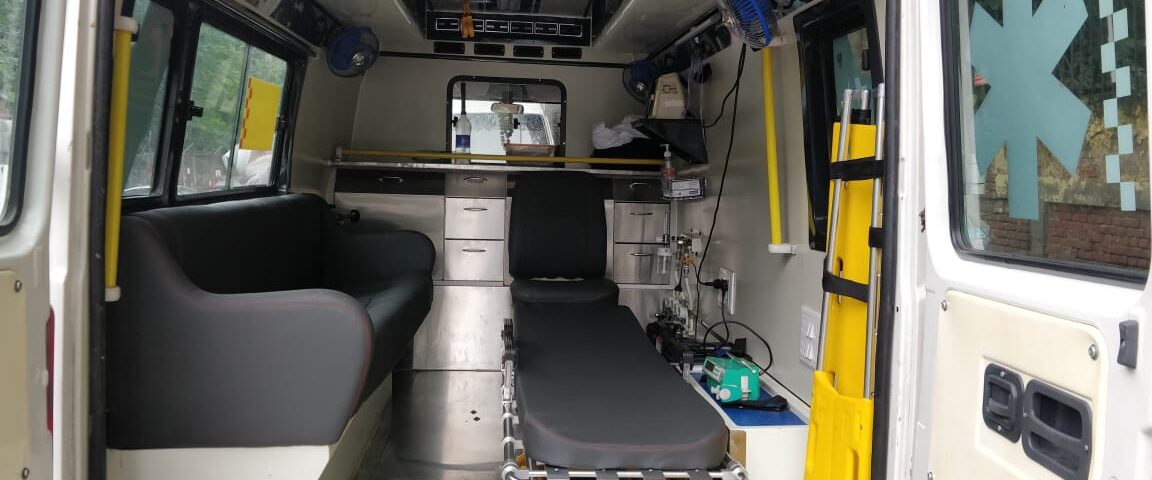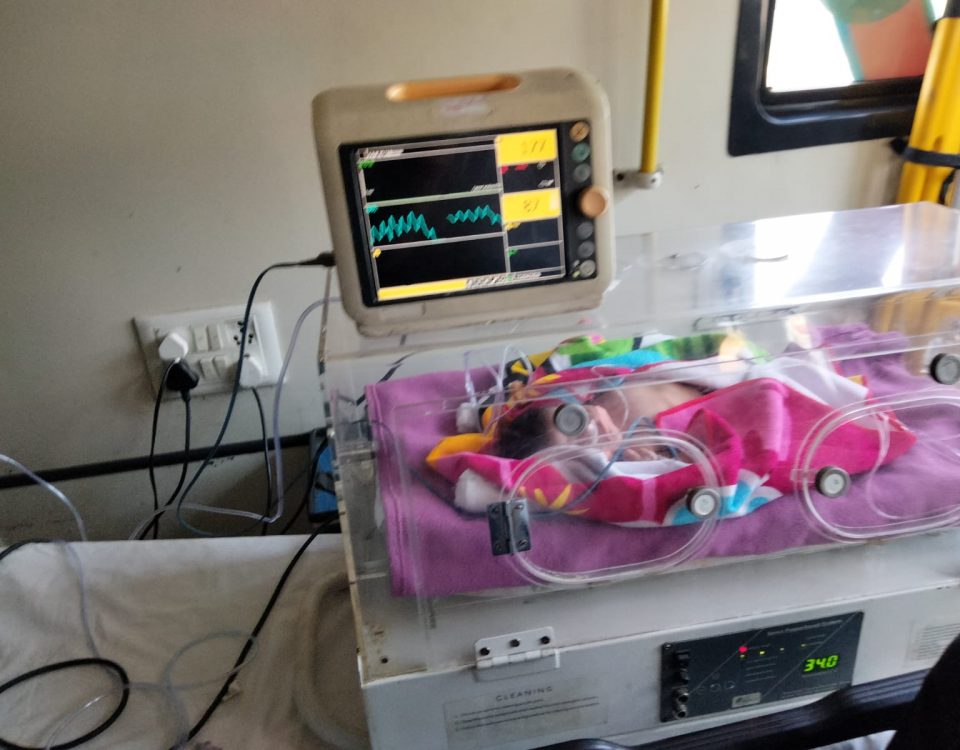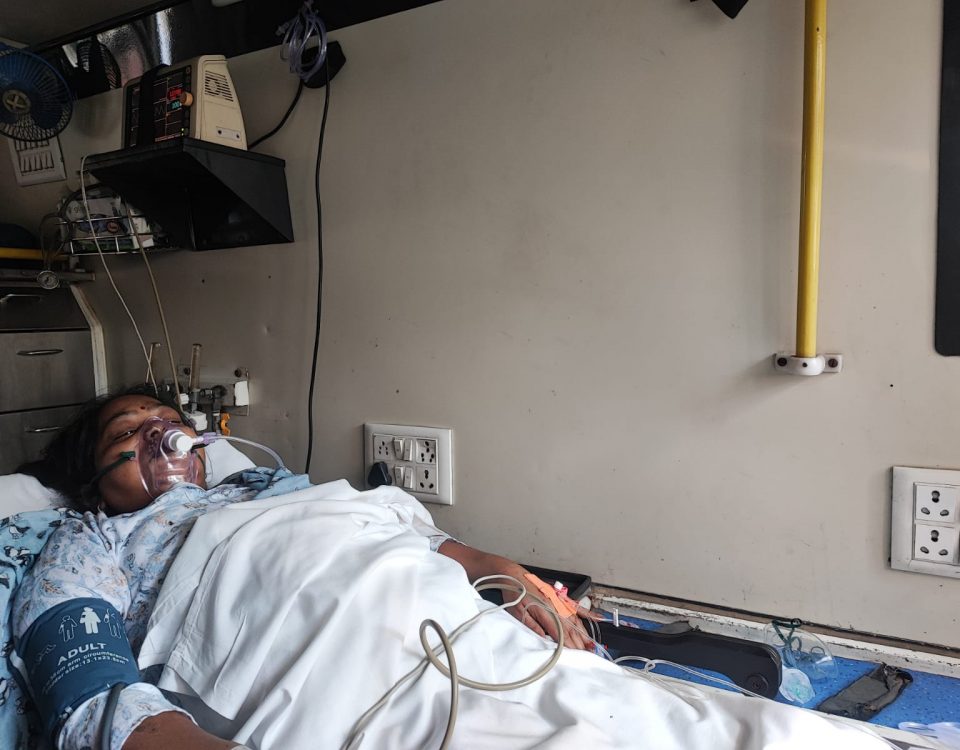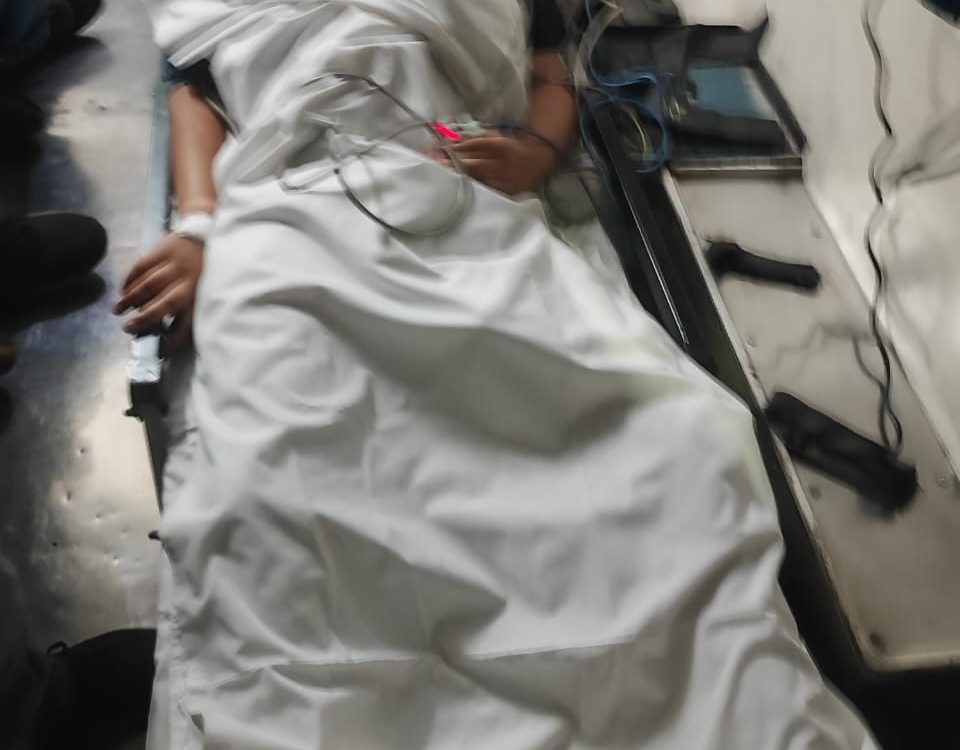When to Call Emergency Ventilator Ambulance?

With healthcare services falling short to fulfil the medical needs of increasing covid patients, calling an emergency medical vehicle is a big responsibility in itself. Booking an ambulance for a case which is not severe in nature can waste the precious time and facilities it can offer to a patient who is battling death. Therefore, before you call an advanced life-support transport provider it is crucial that you gauge the situation. While some symptoms aren’t a reason to feel alarmed or get instant help, others can be dangerous to your health and pave the way to fatalities.
Today we will discuss the signs which hint you need urgent attention from emergency medical specialists, so you never risk yours or a loved one’s life.
1. Chest Pain : A mild pain in your abdomen can be due to a number of reasons from formation of a clot in lungs to acid reflux. However, it can be treated by visiting to your nearest health centre. In case the chest pain becomes intense and continues for more than a few minutes, you should call an ambulance. If it is so intense that you can’t bear it or your loved one passes out after complaining of chest pain, you shouldn’t wait and call 102.
2. Shortness of Breath: Lower oxygen levels can lead to difficulty in breathing. If you are having occasional trouble in breathing, it is best to check with your doctor. When you continue to face the issue repeatedly for a couple of days or more, it is a symptom of a serious underlying disease. Such a person can sometimes experience a sudden shortness of breath, which means an instant access to oxygen might be required. A medical emergency vehicle equipped with oxygen cylinders and ventilators is all you need. If it doesn’t mitigate the patient's condition, a paramedic will help find the problem much before reaching the hospital.
3. Loss of Vision: Your eyes are connected to the brain via optimal nerves. If you are experiencing a blurry vision, difficulty in seeing or completely black out for a duration longer than a couple of minutes, you shouldn’t hesitate to call an ambulance. A partial loss of vision is a red flag which can’t be ignored. These can be signs of an impending stroke or other grave health problems. Also, unbearable headache, dizziness, slurred speech along with reduction in vision shouldn’t be left untreated.
4. Burns: While a superficial burn can be treated with topical application of ointments and other medication, second-degree and third-degree burns can’t be treated at home. Burned skin generally becomes red, inflamed and develops blisters over time. When it causes damage below your epidermis, the skin generally turns white. Charred skin revealing your inner tissues might not heal on its own without medical intervention. If you can’t go to the doctor straight away due to any reason, a hospital on wheels will certainly come to your aid.
5. Vomiting: Bacterial infections and viruses target your gastrointestinal tract. Your body can easily battle against the diseases caused by these pathogens. But if you are constantly vomiting with blood being expelled, you must not ignore it as a common illness. A child below the age of 6 if vomiting for more than a couple of hours should be immediately taken to the hospital. On the other hand, the children above six and adults need to seek immediate medical attention when the vomit is persistent and followed by fever or other symptoms.
6. Deep Cut : When a foreign object seeps deeper into the skin creating a cut with the inner tissues visible, calling the ambulance should be the first step. A slit in your soft areas such as face, neck, joins and reproductive organs also requires the same. If the cut is result of an animal biting you or dirty or other deteriorating agents have infected it, seeking urgent medical help should be your first priority.
7. Stomach Ache: Infection, indigestion, ulcers, swelling and more, there are various causes of stomach ache. An over-the-counter medicine can usually provide you relief from it. Measure your pain on a scale from low, medium to high. If you feel its intensity is high and it doesn't stop even after more than a few hours, you shouldn’t depend on a local pharmacist and call your doctor instead. Undergoing such circumstances along with vomiting can be a sign of an inflamed appendix.
8. Genitals in Women: For pregnant women who have reached the end of their trimester, heavy menstrual flood is a warning they can’t and shouldn’t ignore. See your OBG/YN immediately. Before three months of your pregnancy, if you see red spots or have a light flow, it is not something you need to worry about. However, undergoing periods with other symptoms such as dizziness, cramps, contortions in belly or pelvis might signal impending risk to your/ the unborn child’s health.
9. Genitals in Men: In men testicular pain is generally caused by injury or infection. While injuries are hard to avoid and can be instantly detected, infections can go unnoticed. If you feel your scrotum has swollen or it appears red in color, visit your Urologists as soon as possible. When you experience an infinite amount of pain in your genitals, don’t take any risk and dial 102. In case, pain in the pelvis region is followed by nausea, vomiting, fever, etc. take immediate action and get the emergency vehicle home.



